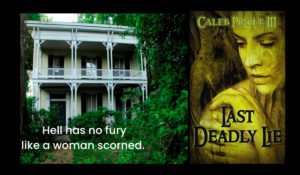Reading is, for me, the best entertainment. More than movies, more than TV, reading provides a person with more entertainment stimulus, and definitely more interaction.
That’s because movies and TV are like watching a baseball game. Whereas, reading is like playing in a baseball game.
June is almost over, and with it the first half of 2021. So I took a look at my reading from January to the present, and thought I’d share with you my thoughts about some of the books and stories I’ve read.
Thus far, I’ve read:
25 novels/novellas
36 novelettes/short stories
5 screenplays
3 non-fiction books
And I’m currently reading Raymond Chandler’s Farewell, My Lovely, which I’ll undoubtedly finish before month’s end.
Were there any books or authors that particularly grabbed my attention? There were!
The brand-new-to-me author who grabbed my attention was Garrett Dennis with his book Port Starbird: A Storm Ketchum Adventure. In fact, the book so impressed me I bought the entire series, which you can find on Amazon.
I love Mr Dennis’ laidback style of storytelling. No in-your-face-from-the-beginning action, just a deliciously slow build-up of tension to the action-packed climax. Which is how a story should be told, IMO.
Port Starbird was a wonderful read, Garrett Dennis is a talented writer, and I heartily recommend him for your reading pleasure.
The novelette/short story that most impressed me was my re-read of “The Colour Out Of Space” by HP Lovecraft, which is probably his best work.
However, right behind HPL’s novelette was “The Cold Equations” by Tom Godwin. The story was originally published in the August 1954 issue of Astounding Science Fiction magazine. I ran across a PDF on the web, and I’m glad I did. You can read it on LightSpeed ezine. It’s a powerful story about breaking the rules and owning up to the consequences.
The novel/novella that lingers in my mind is Last Deadly Lie by Caleb Pirtle III. It’s a masterful piece of writing. A fine example of contemporary Southern Gothic. Mystery, lies, intrigue, and deceit — all expertly woven together to make a story that will linger on in your mind long after you’ve read the last page.
I should add that Mr Pirtle had high-powered competition from the likes of William Meikle, Greig Beck, James Vincett, Andy Graham, John F Leonard, and the above mentioned Garrett Dennis.
I cannot encourage you enough to get a copy of Last Deadly Lie. For me, it is the book to beat this year. You can find it on Amazon.
Non-fiction comes in all shapes, sizes, and subjects. In most cases, I don’t find it to have much more than momentary impact. But that is not the case with How to Die: An Ancient Guide to the End of Life; edited and translated by James S Romm from the writings of Lucius Annaeus Seneca.
Seneca never wrote a book on death, although he wrote a lot about death. Professor Romm has done us the great favor of “writing” the book Seneca didn’t get to.
I am not exaggerating when I write: How to Die is one of the most impactful books I’ve ever read. It is, quite ironically, one of the best books on how to live that you could ever read.
Seneca was sick his entire life. Never far from Death’s Door. For him, the possibility of death was a daily reality; and it was the reality of death that taught him how to live and get the most out of life.
How to Die is an amazing book. I urge everyone to get a copy and read it. You can find it on Amazon.
That’s my wrap-up of the best reads during the first half of 2021. Now on to the joy to be found in books during the second half of the year.
Comments are always welcome. And until next time, happy reading!
Share This!